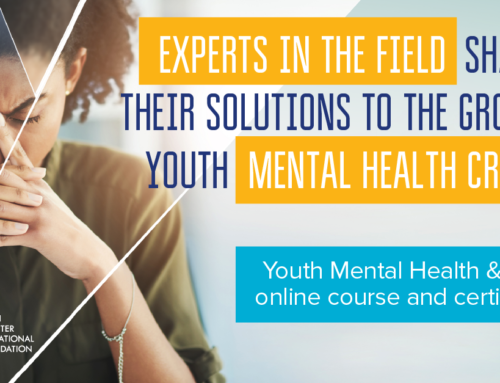
Exploring Careers in Every Childhood Stage
Sometimes, the act of growing up can become less and less appealing to those who are rapidly approaching the grown-up life, aka adulthood! Pressure to settle on a career path makes many teenagers anxious, often causing them to retreat into a shell when asked what their plans are after high school.
But what if career exploration could begin early in a child’s education? What if there was a way to naturally take advantage of your child’s K-12 experience in a way that made career exploration a normal part of their schooling? Plus, took a lot of the pressure off of them later down the road?
Well, that’s our goal today. We want to share how you as a parent, grandparent, teacher, or community member can help the younger generation towards a future career. Of course, it’s going to look much different for a 6-year-old versus a 16-year-old, so today, we’re going to explore some creative ways you can meet a child where he’s at and start him on the path of career exploration.
Show Them the World: the Elementary Years
When children are in elementary school, it’s the perfect time to take advantage of their propensity to explore. “The elementary years are full of self-discovery and career exploration is one way kids can learn about themselves and the world around them,” says HirePaths.
So how can you help a child’s curiosity and career exploration intersect at such a young age?
Having a conversation about “what do you want to be when you grow up?” won’t get you very far with elementary students since you’ll probably get the usual firefighter, police officer, and astronaut answers. Not to mention their answers are prone to change every day as they learn about new opportunities.
Don’t get me wrong, conversations are important, but as HirePaths suggests, “Instead of asking a child what they want to be when they grow up, ask what kinds of problems they like to solve and what activities they enjoy. Talk about which jobs involve similar challenges and activities. Ask if that field interests them and if they think they would be good at that job. If you encounter workers in that field, encourage your child to ask them about what they do. The possibilities will grow from there.”
In other words, for elementary students, work on showing them the world. Explore with them and guide them into situations where they can learn more about the world around them. Field trips are a number one avenue for this exploration. Purposefully investigating the world around you will show your kids what’s available and expose them, first-hand, to some of the career roles that make everyday life run smoothly.
As your child comes in contact with the discoveries they make, “be aware of the words and tone you use when you talk about different careers.” You don’t want to dampen your child’s impressions of a career path and accidentally squelch their desire to pursue it early on!
The Next Steps: Middle School
We generally think of high school as the golden opportunity to begin career exploration. But, really, a solid argument can be made for the middle school years. They play a critical part in a child’s career-mindset development. “Grades 6-8 are often considered the prime beneficiaries for career exploration activities,” says the Xello Blog.
This is because they’re at an age where they are beginning to understand the realities that make regular life possible: the connections between work, salary, and lifestyle. Also, capturing a middle schooler’s interest could safeguard them against dropping out of high school later on. Because, “Once young students identify the relevance of the core curriculum for their future careers, they can be inspired to stay engaged with schooling and even strive for academic success,” says Apprentice Learning.
Taking field trips is still a great way to engage awareness of careers. But middle schoolers are also ready for more involved conversations and activities that can help shape their future. Often, middle school kids’ perspective of career possibilities is, “shaped solely by what family members do for a living,” says HirePaths. So now is the time to introduce them to an array of options.
One beloved practice for broadening career awareness is by encouraging your student to interview community figures. Make sure they speak with your town or city’s librarians, restaurant owners, chefs, mechanics, small business owners, pilots, etc. to really start understanding the vocational opportunities available to them. One simple way to engage with community figures is by attending a career fair.
If students attend a career fair or start engaging with community members, The Xello Blog suggests that they should ask questions about:
- What a typical day is like
- Salary range
- Education requirements
- How/why someone chose that career
It’s also important to cultivate self-awareness during this phase of a child’s life. Trying to help a child discover his or her interests, skills, and goals can help them determine what they may or may not want to do for a career down the road. Try a questionnaire to help grow self-awareness. “Questionnaires can then give [students] personalized recommendations about careers or education paths that students might enjoy,” says Indeed.
Another goal of middle school career exploration is to, “help them understand how soft skills are just as important as academic knowledge.” Things like, “solving problems, working together in teams and leading others… will play a major role after school in their professional lives,” HirePaths suggests.
Hot tip: As you guide your middle-schooler through these years and watch their interests bud and bloom, consider enrolling them in a magnet school to help them engage more deeply with their interests.
Leveling up: High School
Ah, high school. As we know, the pressure is on now. But, for kids who have been exposed to thinking about careers since they were little, their high school years may not be as stressful. However, even if they haven’t been in the habit of thinking about their future, it’s still possible to put them on track for career success down the road.
A great place to start is by asking students “what they like to do in their free time and use this information to guide [them]. For many, I suggest that they volunteer several hours at a place that fosters their interests,” says Crissy Lauterbach for Virtual Job Show. “If a student loves animals, encourage them to volunteer at a local animal shelter. While there, they have to create a career web showing how many people it takes to run the shelter, including cage cleaners to grant writers and everyone in between.”
This kind of activity helps teens and young adults wrap their head around their opportunities while also giving them a fair idea of the work involved in turning their interest into a career.
Another fruitful activity you can use with high schoolers is to make sure they uncover hidden jobs; “i.e. not teacher, engineer, baker or mechanic. Ask them to find roles like HR specialist, content marketing strategist, forensic science technician, or computer network architect and present them to the class.”
Some teens are indifferent towards discussions about career matters, so it’s important to make sure you aren’t rushing them. Chatterhigh suggests that, “Giving them the time to reflect and learn at their own pace helps improve their motivation, build self-esteem and develop vocational identity.” Don’t forget to leverage the gap year if your teen is the type who just needs a break—an opportunity to explore their options and what it means to be an adult. Carving out this gap year might refresh your teens’ excitement about choosing a career path.
It’s All an Adventure
Each child will be vastly different from another. Hence, parents, grandparents, teachers, and community figures as they support each child will have unique roles in shaping the future workforce.
Keep in mind that “65% of children now entering primary school will ultimately work in a job that currently doesn’t exist.” Times are always changing around us, so helping a child recognize his potential and leading him to act on it is the ultimate, and tremendous responsibility, of adults.
As a shaper of young lives, you’ll both learn a lot and make new memories on this path of career exploration. So don’t rush or dread it, but instead take time to mindfully guide your children or students through their growing up years and celebrate with them on their way to the next right thing!




